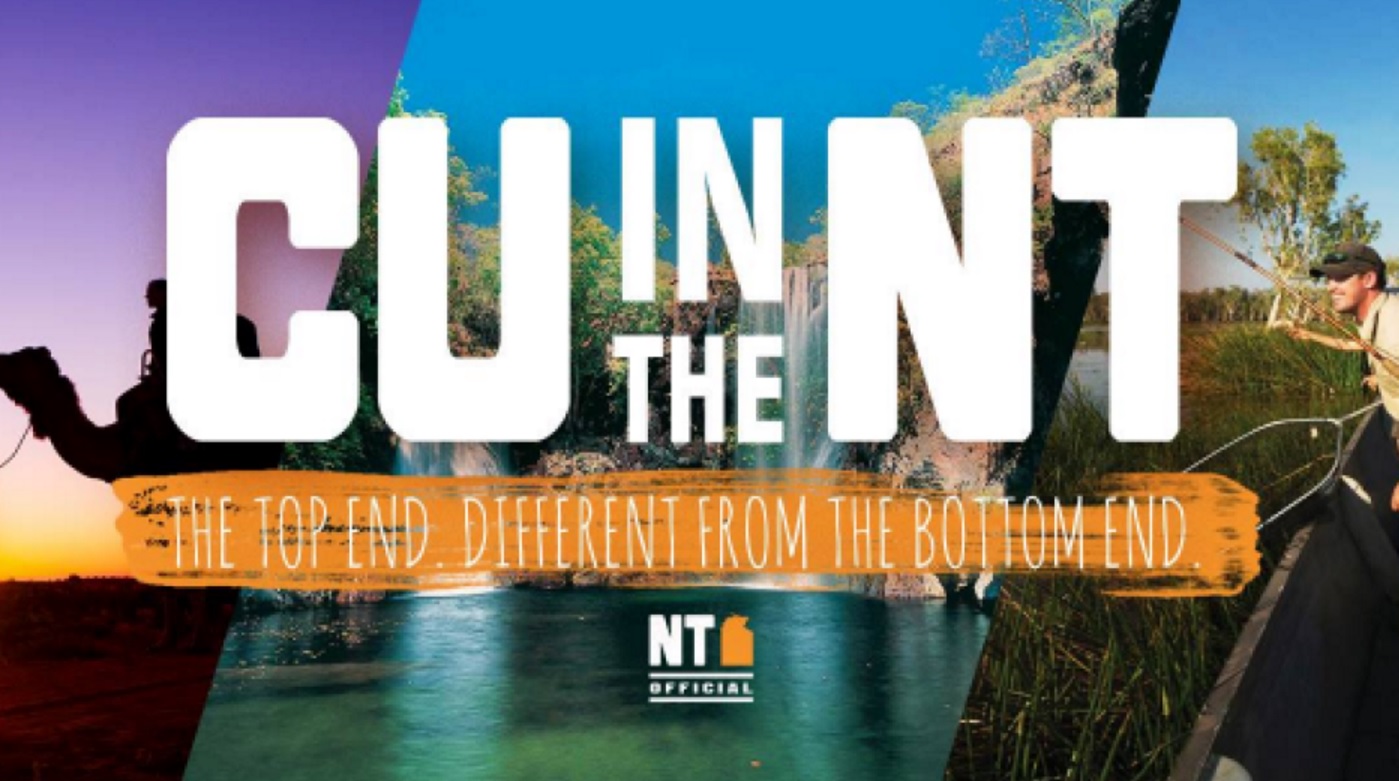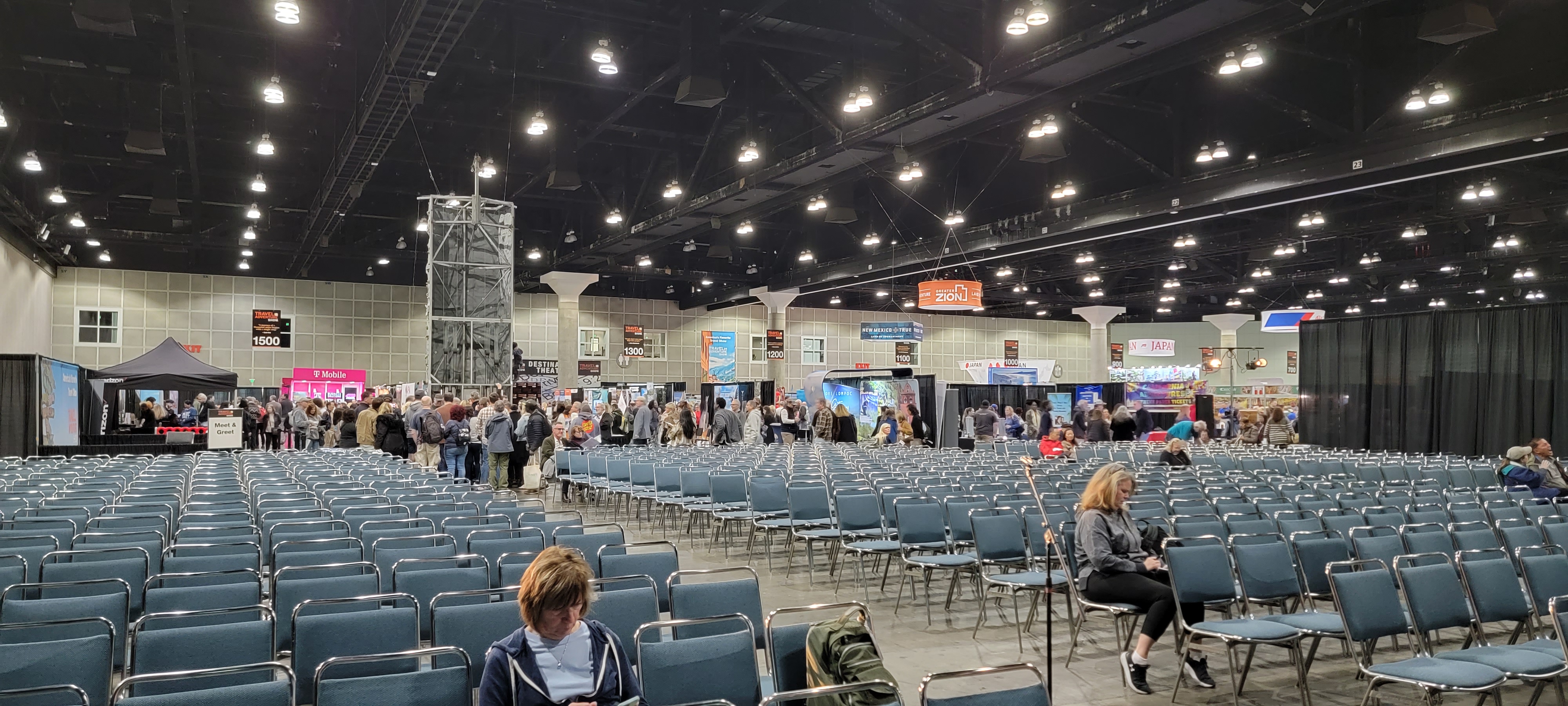Tourism boards are often highly questionable. They’re big pots of money where politicians appoint friendlies to cush, well-paying jobs where there are very few metrics of actual success and leaders attend conferences and treat themselves and others to a good time.
In the history of destination marketing there have been some good and effective slogans (“What Happens In Vegas Stays In Vegas”). Australia’s Northern Territory got outsized attention when a slogan they promoted was ruled obscene.

There’s also plenty of missing money and unsuccessful campaigns. And at the end of the day some places sell themselves, and others just aren’t gong to attract a lot of visitor business no matter how much they invest. Ithaca, New York once gave up and said, yeah, you really should just go to Florida instead.
In Austin, the Hilton at the convention center is owned by the city. When a member of the City Council lost re-election, they were given a six figure no show job as the city’s ownership representative to Hilton, which had a long-term management contract to run the hotel. The job was described as intensive: having to send emails to set up board meetings with the city council.
But I had no idea that the heads of these boondoggles made so much? Skift pulled the data since it’s mostly public.
- The head of Visit California takes in over $1.5 million
- The head of Visit Indianapolis earns $921,470 and is under 12-year contract. Firing them would require paying out that contract.
- Nashville pays theirs $1.4 million
- The San Francisco Travel Association pays nearly $1 million per year and they’ve been losing business.

Speaking To A Convention Center Audience In February
The head of Discover Puerto Rico says they’re measured on “between 15 and 50 KPIs” which means there’s no accountability and they don’t even know what their metrics are. Visit Austin has a 32-member board, which is another sign that there’s no accountability. Worse than no accountability, I knew a convention bureau leader who went from St. Louis to Loudoun County, Virginia who moonlit as a leader of a white supremacist group and baked Hitler cookies.
- Anaheim, California spent over $100 million with no oversight
- Millions in fines were paid over bid-rigging for the Denver convention center
- Philadelphia has had more than one scandal
- Long Beach, California’s visitors bureau spent $40,000 on a cake and gave gifts to the very politicians who were supposed to be overseeing its spending.
These organizations track visitor numbers. If those are growing, the convention bureau must be doing a great job! More often, of course, it’s because the destination is increasingly desireable along with broader macro trends like the economy, availability of scheduled air service, and other cost and hassle factors. They look at hotel occupancy rates, but local short-term rental rules and factors influencing hotel construction matter a lot here. And then they look at visitor satisfaction and community satisfaction from surveys, which don’t add much to the discussion of whether this public spending is useful.
Does Visit Orlando really need to pay over half a million a year? They have Disney, Universal Studios and SeaWorld. Disney has a huge marketing budget. What good are public dollars here, anyway?
There are more than 551 visitor and convention bureaus in this country spending over $2 billion annually and holding that much in assets as well.
And you’re paying for it. In many jurisdictions there are hotel taxes funding these efforts. Local governments raise hotel taxes in order to promote tourism, which basically gets the economics backward.


No visitors to Ithaca no matter how hard they try to think of a slogan?!
Ithaca is Gorges!
Politicians who are not elected need a remunerative gig … oh sure , a tourist board .
I think there is a difference between the entities funded my mandatory taxes (like hotel occupancy taxes) and the entities funded by membership dues or direct general appropriations.
The ones that directly receive tax revenue tend to have the least accountability because local politicians view the tax as something their constituents largely don’t pay. It’s mostly, but not exclusively, a tax on visitors.
By contrast, the ones that are wholly membership-based and funded through dues seem to be the best.
@FNT indeed
Recently saw an article with the head of a bureau for a non descript San Francisco suburb with a few hotels and strip malls and not much else. Multiple full time staff funded by the hotel tax on those few hotels.
I’m on the tourist development board for a smaller destination in Florida, and have been for about eight years. The board does NOT get paid, it is a volunteer board of people who are involved in tourism (hotel owners, B&B owners, restaurants, etc.). The director and staff get paid, but the funds to pay them come from the bed taxes, not from the local taxpayers.
Tourism pays 40% – yes 40% – of the sales tax in this area, provides about 6,000 jobs, reduces our property taxes by something like $400 per home, The bed tax money goes to advertising in our major markets, towards convincing airlines to serve our local airport, paying for tourism writers to visit (and they invariably write glowing articles, not because they got a free trip, but because this is a really nice destination) and more.
We pass a stringent external audit by a well respected accounting firm every year, there are also internal and county government audits, so nobody gets to tap the till. If you are looking for government malfeasance, you’ll have to look elsewhere – we are squeaky clean.
In the tourism market, if you stop advertising, you are out of business. There is a LOT of competition for tourist dollars, and if nobody knows you are there, you won’t get any. As to spending money to advertise Disney, well believe it or not, there actually ARE other things to do in Florida and some of them are quite nice.
The tourist boards are a pure waste of tax dollars.
I work on the meetings side of the hospitality industry and have for more than 50 years. DMOs/CVBs have faced many issues of funding, staffing, and purpose over that time.
This was interesting to read; many of us were aware of some of the less-than-ethical (or legal) performance issues. Others were interested in learning more. For groups booking meetings, it would be interesting to know what is and is not disclosed by DMOs to groups or to individual planners.
Because I live in DC, the largest metropolitan area near Loudon County, VA, and because I know folks with the St. Louis DMO, I asked if this – ” Worse than no accountability, I knew a convention bureau leader who went from St. Louis to Loudoun County, Virginia who moonlit as a leader of a white supremacist group and baked Hitler cookies.” – rang a bell. They had no idea who it might have been or when this could’ve happened. I wonder if it were known about this person’s activities in a white supremacist group, if actions were taken by the Tourism Board or the County Govt. to remove the person from their employ.
I tried to find a code of conduct/ethics, a DEI policy (there is a Committee), and anything that might explain more.
Is it thus that you, Gary Leff, know or know of this person and the cookies directly?
US Tourism Association says tourism just in the US (domestic and foreign visitors) generated 2.8 trillion dollars in 2023 and created 15 million jobs. There’s obviously a market – Hilton, Marriot, even Motel 6 and a bunch of mom-n-pops all depend on tourism. Thousands of restaurants, millions of dollars in tolls (on toll roads), airlines, cruise ships and more, point is, people LIKE to travel and will pay and pay well to do so. Any city, state or country that doesn’t actively go after tourist dollars is dumber than a box of rocks. Tourists IMPORT MONEY – lots of money – into the local economies and looking at scenery doesn’t wear it out, nor does swimming in the ocean use it up.
Many DMOs are supported by bed taxes, not taxes on local residents, and those that are supported by local taxes also bring visitors who spend money – lots of money – in the local economies. I don’t know where the opinion that “tourist boards are a pure waste of tax dollars” came from, but I do hope you kept the receipt because that opinion is just flat wrong.